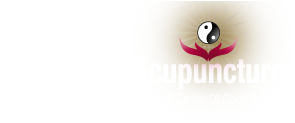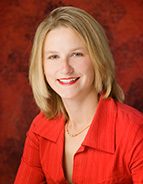Acupuncture Wellness Center
10139 NW 31st Street #101
Coral Springs, FL 33065
(954) 755-1292
A Holistic Approach to Disease
Holistic Medicine is a system of care that considers the needs of the whole person. Rather than focusing only on the malfunctioning body parts, it also explores the broader dimensions of the patient’s life; physical, nutritional, environmental, emotional, and spiritual. This branch of medicine is aimed at treating and curing the client and requires looking at the mind-body connection. Technology has made extraordinary advances in modern medicine, yet most primary care providers will admit that the most sophisticated medical care can fail if the client, as well as the disease, is not part of the treatment protocol.
The Mind Connection With Health and Disease
It is difficult to identify or even define the mind. The mind has been described by Cadence Pert, PhD, as “an enlivening energy in the information realm throughout the brain and body that enables the cells to talk to each other, and the outside to talk the whole organism.” The mind has everything to do with our health. Moods and attitudes embodied in our emotions are part of the mind’s physical expressions. Our emotions affect all our organs and tissues. Negative emotions, especially, over a long period of time will have a negative affect on health; positive emotions will have a positive effect on health.
It appears that sustained negative emotions over long period of time can seriously hinder the body’s immune system and keep it from functioning at an optimal level. Such linkages between our psychological state and the body’s biologic processes call upon the medical community and each of us to pay close attention to our emotions and level of stress. This approach to medical care may be called ‘holistic”.
Personal Responsibilty
Holistic Medicine emphasizes personal responsibility and encourages cooperation and participation of patient and practitioner to achieve and maintain good health. The body is not indestructible; therefore we need to be taught self-care and responsibility from birth. Often, however, not until we see someone become disabled or die that we gain a proper appreciation for the body. We need to listen to our body’s signals and seek necessary attention. Symptoms are often a sign something is wrong. There is little or nothing even the most influential medical practitioner can do when the body breaks down if we do not want help or are unwilling to ask for it.
Being responsible for oneself requires the individual to avoid potentially harmful behaviors, such as choosing to smoke, to avoid exercise, to eat unhealthy foods, or to disregard treatments prescribed by health care providers. Being responsible means taking care of our bodies and seeking help when help is needed.
Acupuncture
Acupuncture is a type of holistic medicine that considers the needs of the whole person. An Acupuncturist not only focuses on the body’s physical dysfunction, but also explores the patients’ mental, emotional, and spiritual health. According to the World Health Organization, acupuncture has been proven effective in treating over 43 known ailments including depression, headaches, arthritis, menstrual disorders, infertility, anxiety, panic disorders, insomnia, fatigue, asthma, digestive problems, etc.
As you can see acupuncture does more than just help relieve pain. An acupuncturist can support a person in the most difficult times in their life. Whether it is going through a death in the family, divorce, abuse, or even a serious illness, this therapy can help a person heal the toughest scars. Because acupuncture takes into account the mind-body connection, an acupuncturist can help you understand the underlying causes to your condition. Take responsibility now. Get the care you need before your condition gets worse.
Acupuncture Treatment Learn more...
Monthly archive
- January 2018 (1)
- August 2015 (1)
- August 2014 (1)
- April 2012 (1)
- November 2011 (5)
- August 2011 (2)
- June 2011 (5)
- May 2011 (1)
- April 2011 (2)
Tags in Treatments






